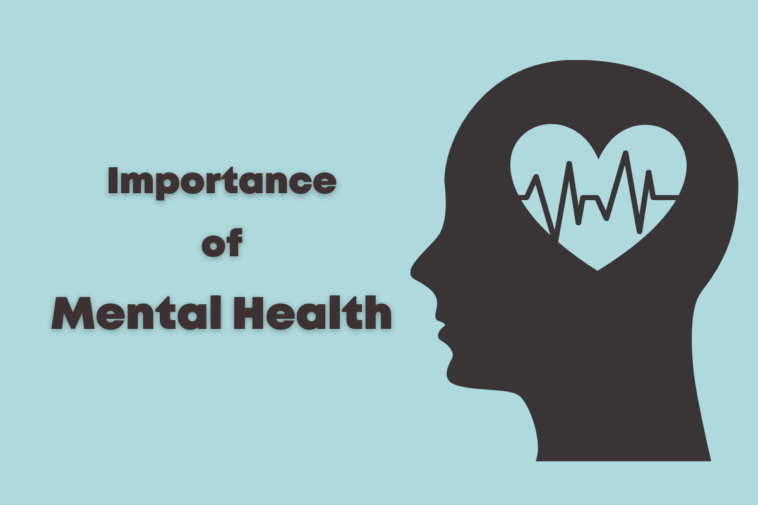The Importance of Mental Health
Maintaining a healthy mind is crucial to overall fitness. Your mental, emotional, and social functioning will be affected by this component of your well-being.
Your mental health affects every element of your life, therefore it’s crucial that you take care of it and strive to get better.
We will discuss risk factors and indications that may suggest mental discomfort because your mental health can be affected by a variety of things. And most significantly, we’ll discuss the many positive outcomes that result from optimal mental health.
Risk Factors for Poor Mental Health
Psychological health is defined as the degree to which an individual is resilient in the face of adversity. In this condition, one is able to do useful work and make significant contributions to society.1
ALSO READ: Health Benefits of Papaya
But there are a variety of factors that can influence one’s resilience to life’s unexpected turns. Daily routines and coping mechanisms could be impacted by these elements.
Below are some potential influences on mental health and risk factors for psychiatric disorders.
Childhood Abuse
Severe mental and emotional suffering can result from a kid being subjected to physical assault, sexual violence, emotional abuse, or neglect.
Abuse raises the probability that a person will suffer from a mental illness such depression, anxiety, PTSD, or a personality disorder.

Children who have been abused are at increased risk for developing substance misuse problems as adults. Child abuse can cause more than just psychological problems; it can also cause physical health issues like diabetes, stroke, and heart disease.
The Environment
The condition of one’s regular surroundings has a significant impact on one’s psychological health. Negative effects on mental health can be caused by being exposed to stressful environments.
A rise in suicide rates may be influenced, for instance, by adverse weather. Similarly, witnessing a natural disaster personally can heighten the risk of post-traumatic stress disorder. There is some evidence that exposure to high levels of air pollution can exacerbate depressive symptoms.3
On the other hand, being surrounded by supportive people might help you overcome mental obstacles.
Biology
The condition of your health may depend on your genetic make-up. Several types of mental illness have been linked to genetic transmission within families.
Disorders such as autism, ADHD, bipolar, depression, and schizophrenia are included in this category.5
Lifestyle
Your mental health may also be affected by the way you live your life. Causing injury to one’s mental health can involve smoking, eating poorly, drinking excessively, abusing drugs, and engaging in unsafe sexual behaviour. Depressive symptoms like this have been observed.6
Signs of Mental Health Problems
It isn’t always obvious to the affected person or those around them when their mental health has been impacted. However, there are indicators to watch out for that can indicate deteriorating health. For example:7
Modifying one’s eating routine, whether to eat more or less.
Significant depletion of vitality
becoming more introverted and avoiding social interaction
Despair that won’t go away
using drugs, alcohol, or smoke more frequently than normal
experiencing extreme shifts in emotion, perplexity, wrath, guilt, or worry that cannot be explained
Choosing to argue with loved ones
Strange voices heard with no obvious cause
Considering doing harm to oneself or others
Having difficulty with routine activities





